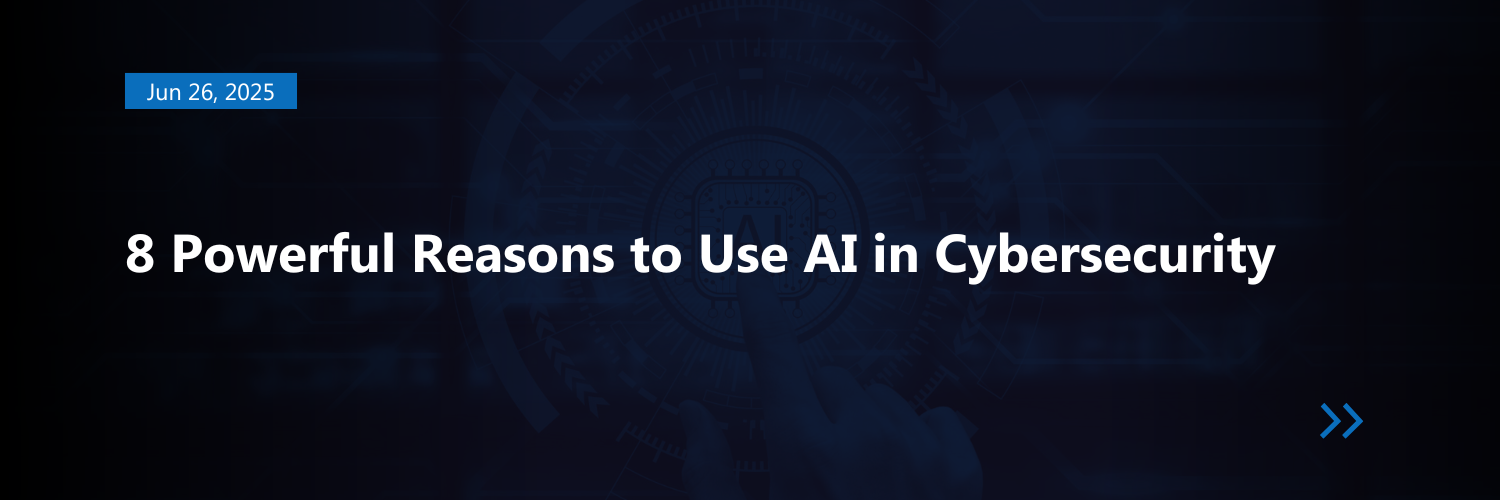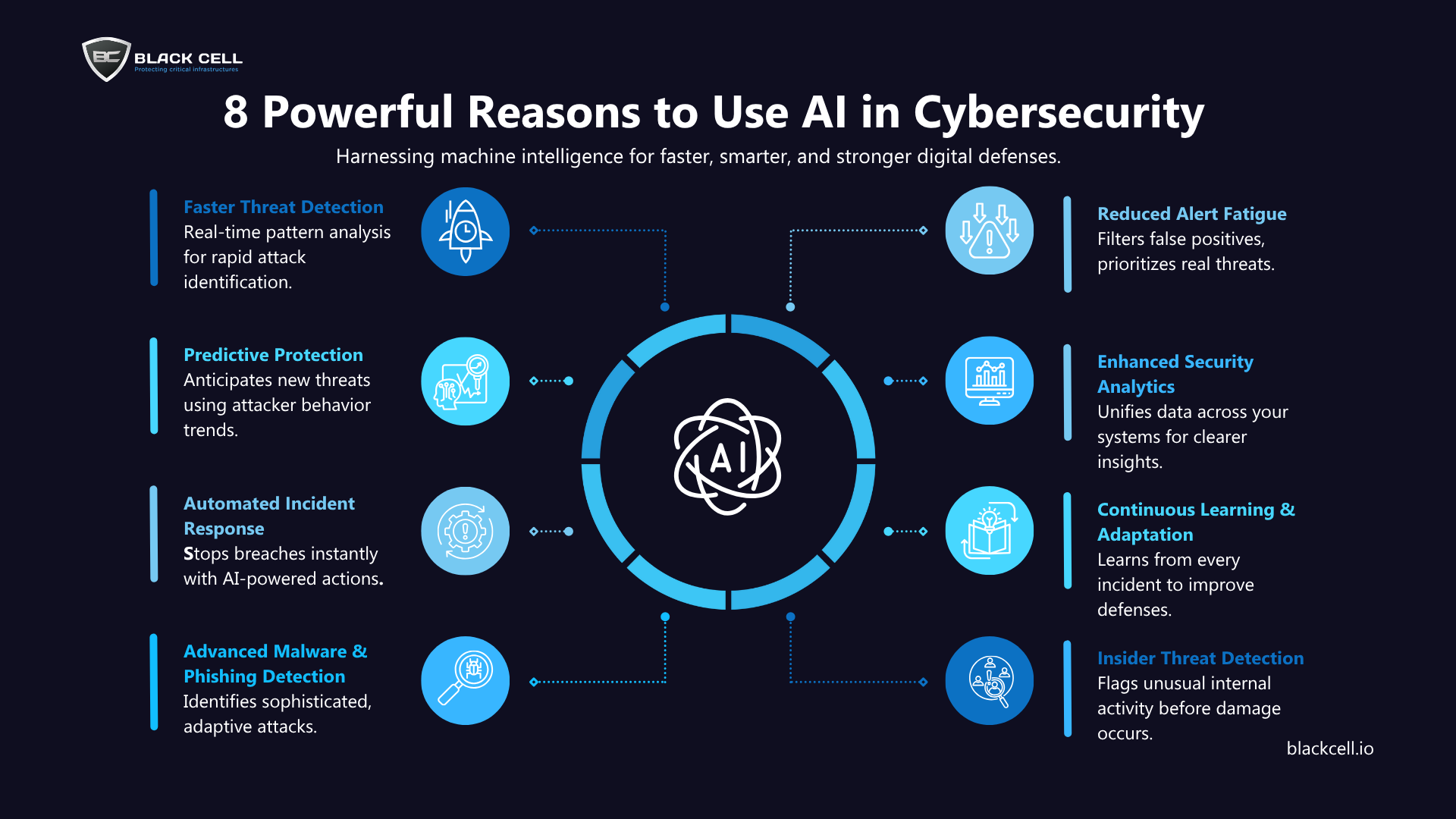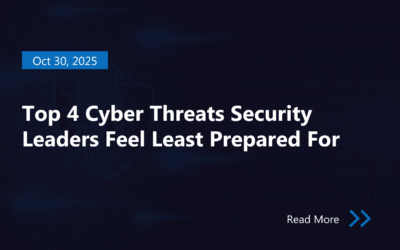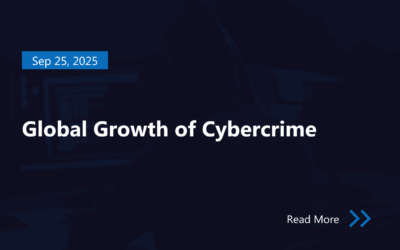Harnessing machine intelligence for faster, smarter, and stronger digital defenses.
8 Key Benefits of AI in Cybersecurity
- Faster Threat Detection
AI can scan massive volumes of network traffic, user behavior, and system logs in real time, identifying threats as they happen — far quicker than any manual process. - Predictive Protection
Using patterns from past attacks and attacker behaviors, AI predicts new, emerging threats before they strike. This proactive defense helps organizations stay one step ahead. - Automated Incident Response
When a breach attempt is detected, AI can automatically trigger predefined actions — like isolating affected systems or blocking malicious traffic — to neutralize the threat instantly. - Advanced Malware & Phishing Detection
AI excels at identifying sophisticated, polymorphic malware and cleverly disguised phishing attacks that traditional tools might miss, improving endpoint and email security. - Reduced Alert Fatigue
Cybersecurity teams often face overwhelming numbers of alerts. AI filters out false positives and surfaces only the critical, high-confidence threats that need immediate attention. - Enhanced Security Analytics
By consolidating and correlating data from various security tools, AI provides clearer, actionable insights, helping teams understand incidents faster and respond more effectively. - Continuous Learning & Adaptation
AI models evolve by learning from each incident and data pattern, continuously improving their detection accuracy and resilience against new attack techniques. - Insider Threat Detection
AI monitors for unusual or risky behavior from within the organization — like unauthorized access attempts or large, unscheduled data transfers — flagging them before real damage is done.
“AI isn’t replacing cybersecurity teams — it’s amplifying them.”
By automating routine tasks, enhancing threat detection, and providing smarter analytics, AI empowers security professionals to focus on strategy and complex investigations.
Author

Tibor Luter
SOC MANAGER
Tibor Luter is the SOC Director at Black Cell and has been leading the CSIRT team since its formation in 2015. Tibor is also responsible for expanding the SOC’s technical capabilities and services in the Middle East and North Africa (MENA) region.
Related Posts
Top 4 Cyber Threats Security Leaders Feel Least Prepared For
Even the most experienced security leaders admit they’re not fully ready for every threat lurking...
Global Growth of Cybercrime
In today’s hyper-connected world, cybercrime is no longer a distant threat - it’s a looming...





